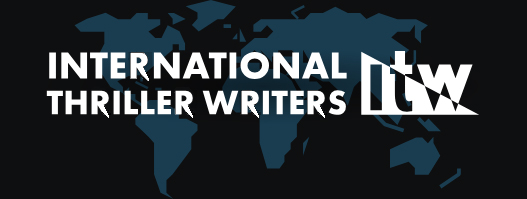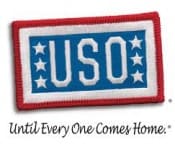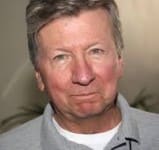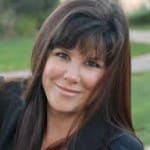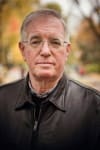Kuwait is a friendly country. But it sits as a tiny piece of a massive landscape in which there are many extremists who do wish us harm. Our base in Kuwait is filled with people who might be called to action at any moment. When we mentioned this fact to these soldiers, they often brushed it off, and told us that it was “just” their job. An understatement to say the least, but they were most sincere.
I spoke with a young man who told me he was a twin. In our conversation he told me that he and his brother had both enlisted on the same day but they’d been afraid to tell their mother. Finally, they did. They had considered lying to her and telling her they’d both have desk jobs. But that wasn’t the truth—they were both going to be army scouts. I asked him what happened when he finally told his mother. “She cried,” he admitted. “But, she understood.”
From Kuwait, we headed to Ramstein—a huge base. The area hosts the largest community of Americans outside our own country. There we were privileged to visit with more wounded soldiers. One wants to be a writer—and he has a wonderful story to tell. All of them were ready to heal—and get back into the fray.
One who will not fight again was a coalition soldier. A bullet severed his spinal column. He will never walk again and most probably will not be able to use his arms again, either.
As we write this, we’re at RAF Mildenhall in Great Britain. We’ve met all kinds of men and women—those who fly missions, those who work on planes, and those who plan strategy and command. They all know they may go “down range” or to the fighting zones in the Middle East and elsewhere at any time.
This morning, we had a discussion on the right words to attribute to all those who serve—because, of course, we see courage in the healing process but it goes far beyond that.
Every man and woman who enlists or is commissioned agrees to go where needed—and to give up his or her life if needed. They know that they may be assigned somewhere in the states or perhaps Germany or England—or they may be assigned to a brutal war zone. They may survive unscathed, they may be wounded—or they may be killed.
So courage comes the minute these people sign up. Reliance, independence, and strength are added to that courage when they face the healing from shattered and destroyed limbs and organs. We saw men who were jogging on artificial limbs—and soldiers striving to speak again after bullets have scraped by their heads and necks. We met a man whose body was so destroyed one would think that not even the best sci-fi writer could conceivably put him back together—and yet he spends his days working to help and enable wounded comrades.
It begins with courage. And from there, so many of these men and women are not just courageous, but amazing in their strength, faith, and remarkable ability to move forward and embrace life. They will not be defined by an injury—they will make their own way, and make their own life.
We have been honored and privileged to meet our men and women in uniform, those who have paid an incredible price and those who stand ready to fight and meet what fate may deal out at any time. As the tour ends, we can only feel that we should be on our knees to thank them. We cannot thank them enough; Kathleen and I are very grateful to be Americans. We know that we owe our freedom and lives to all those who have fought for America, now and throughout our history. May God go with every one of them.
